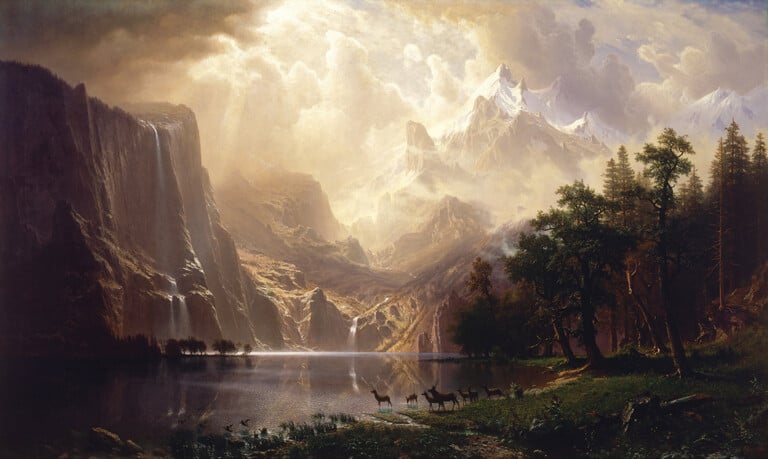Writing the territory: the literature of discovery and exploration
Started as a vision in Europe: it is a product of literary imagination. America existed only as a literary object that was represented in the writings of Europeans who first visited America. They brought back their visions, written in Spanish or French and not in English.
16th century: the English knew about America through outside texts, not from English texts.
The 1670s: English mariners started exploring the North American coast.
The creation of American literature goes hand in hand with the first permanent colonies at Jamestown, Plymouth, Boston, Charleston or Philadelphia.
In the language, American in temperament and tone, the literature of the colonists was different from the exotic narratives of the explorers (i.e. “land of miracles”, “eldorado”).
The literature of the colonists shows a contradictory mixture of terror and exaltation before the magnitude of the land.
However, more often than not, the literature of the first settlers shows that it was difficult to maintain a positive attitude toward America. George Percy’s Discourse on the Plantation (1607) shows that the writers saw America as a land of “meadows and goodly tall trees” and people as “miserable distressed”.
So they are full of ambivalence and contradictions. America is the land of new beginnings and opportunities but also a beautiful land of difficulties (sacrifices, isolation, and hard work). Ambivalence is an important factor in American literature.
This first contradictory experience will mark American literature with its most nasty and characteristic voice, created out of actions rather than imagery or contemplation.
The narratives of Captain Smith are big examples of the American new character: the narration of the internal life of the individuals goes hand in hand with the external description of the land.
There’s a constant dialogue between the mind of the individual and Nature. It’s always Nature that has a strong effect on the minds of individuals. Human minds only change with confrontations with Nature.

